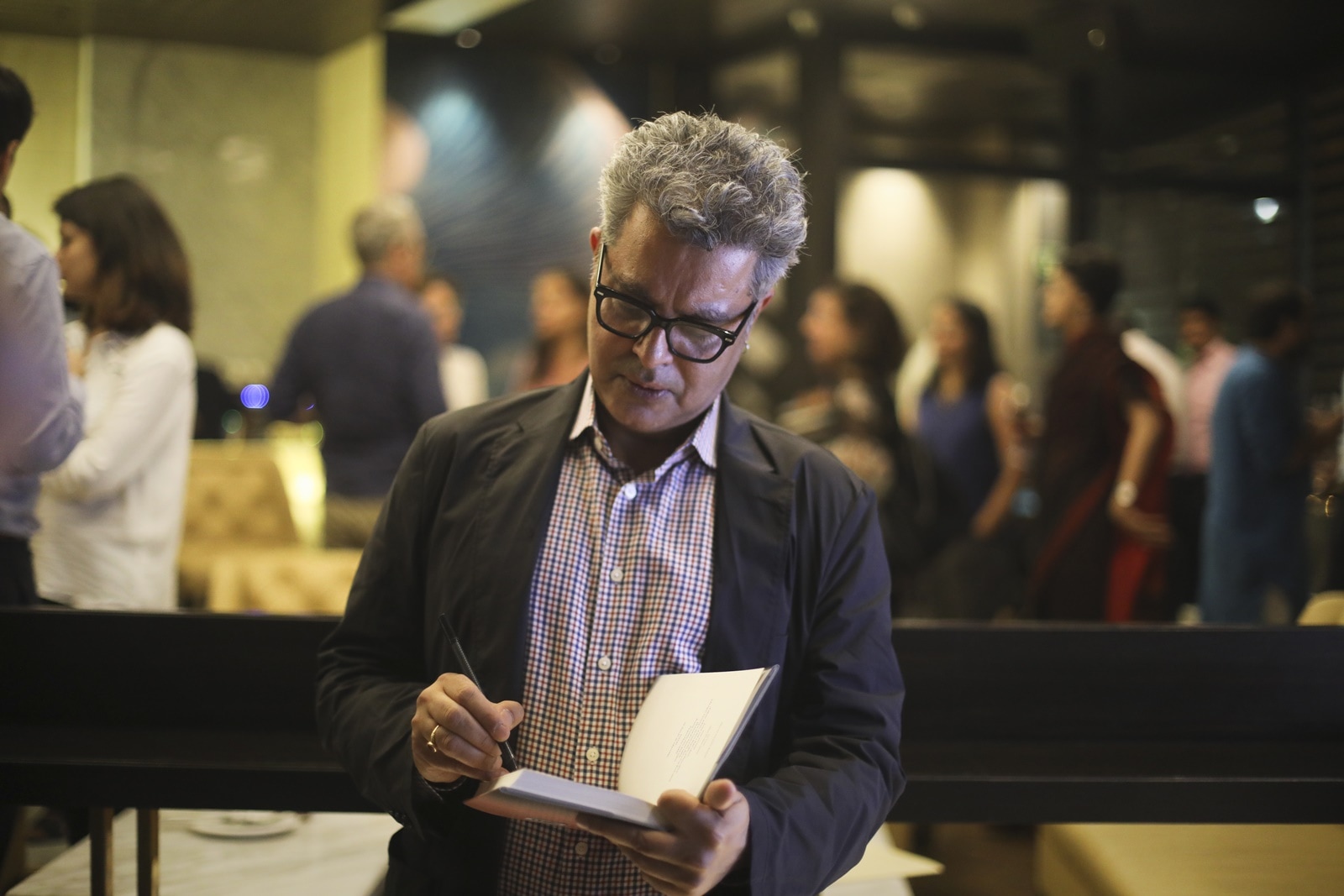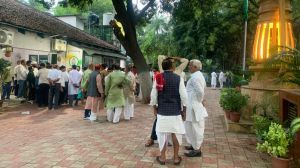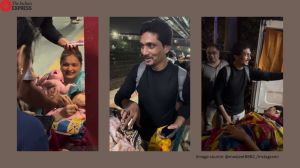What Amitava Kumar’s The Yellow Book tells about the mind of a writer
Kumar’s new book explores what it means to be open to possibilities in an attention-deficit world
 The Yellow Book: A Traveller's Diary by Amitava Kumar (Source: Amazon.in)
The Yellow Book: A Traveller's Diary by Amitava Kumar (Source: Amazon.in)In 2020, as the first wave of the COVID-19 pandemic spiralled into a catastrophe, in an essay that was published in The Indian Express, writer Amitava Kumar wrote of grief and the erosion of compassion, of loss and the anatomy of a tragedy, both personal and universal. “This pandemic hasn’t generated grief alone. We have experienced, by turns and often together, melancholy, outrage, fear, and last but not least, anger at the bad faith of our rulers everywhere. In India, where some of our products rely more on a robust practice of adulteration, and everything is 50-50 or aadha-aadha, we get aadha grief, aadha gaslighting. Aadha pain, aadha manufactured outrage. Aadha genuine fear, aadha cultivated ignorance. There is nothing pure or sacred, not even sorrow… The contagion has produced a new world, no doubt, but everything appears to be only a repetition of all that was there before.”
Reading The Yellow Book: A Traveller’s Diary, that shares a contiguous time frame, brings back memories of that essay and reaffirms how Kumar is at his finest when he is a record-keeper of the quotidian. “How to stop time?” he asks at the beginning of this hybrid book — an amalgamation of journal entries, sketches, photographs, craft know-hows and reflections, recorded between the lifting of the lockdown after the first wave of the pandemic and December 2022. In this time, he travels from the US to London to conduct a study tour with a group of American students amid the Omicron wave; a year later, he returns “home”, to Patna to his father and sisters, but also to Jadopur, the village in Bihar from where his father had begun his journey. Interspersed in between these vignettes are professorial advice to his students on life and writing, at the heart of which is the grandiose question: “How to stop time?”
The answer to this though is far less complicated than one might imagine. “You must keep a journal,” Kumar advises, “…make marks in your journal all the time”, “return to what you once enjoyed”, “Be alert to the passing seasons” for “time cannot be stopped, of course, but it can be lived more fully.” If these sound a bit trite, Kumar can be forgiven for the cliches. In a world obsessed with the screen and the self, these are crucial DIY post-its — to look out, look beyond and to take note.
 Amitava Kumar (Credit: Express Archive)
Amitava Kumar (Credit: Express Archive)
For Kumar, this note-taking seems to be a regenerative experience. As in The Blue Book: A Writer’s Journal (2022), here, too, he observes keenly, almost obsessively, the passage of time and events. But what lends them urgency is his ability to contextualise them historically, culturally and emotionally. In one of the most urgent essays in the collection, “Enemy of the People,” he writes of the transcendental power of language and literature in offering resistance to authoritarianism, of the idea of Salman Rushdie — with his obduracy in the face of opposition, his constant challenges to the status quo and his inimitable use of the English language — as what Edward Said had called an “intifada of the imagination.” In the aftermath of the grievous attack on Rushdie in August 2022, Kumar writes, “When I was twenty-four, the same age as his assailant, Rushdie was magically imagining my life and making it real. Or so it felt. I was a new immigrant in the United States, and in essay after essay, later collected in Imaginary Homelands, Rushdie offered me a language to recognise myself as an individual in the West. He had always asked: How does newness enter the world? It was a migrant’s question.”
These offer glimpses not just into the scholarship of the writer but also the life of the writer for whom reading had breathed into reality an intellectual landscape full of possibilities. In an open letter to Rushdie’s attacker Hadi Matar, that had first appeared in The Indian Express and parts of which appear in the essay, Kumar writes, “Like the man you tried to kill, I, too, am a writer. As my life has been given over to reading and writing books, I hold on to the belief that if we read widely and deeply, we will encounter people and places unlike ourselves. This sense of difference, its pleasures and challenges, will perhaps steer us away from intolerance. Many people in this country (the US), including Malcolm X, discovered reading in prison — and were transformed. I hope that you too will find a similar liberation in learning.”
Kumar peppers cues for this liberation throughout The Yellow Book. There are lessons on voice and honesty, on the importance of observation and of reading constantly, incessantly. In these passages, Kumar, professor of English at Vassar College, assumes the grandiloquent voice of the distinguished academic, dazzling readers (and students) with his easy proximity to and camaraderie with literary heavyweights, whose wisdom they may benefit from simply by being attentive to the page.
A journal is necessarily a mise-en-scène unified by the writer’s curatorial vision. Kumar is at his most authentic when he is looking inwards, mapping his own emotional attachments and interrogating their complications through interactions with memory and personal history. One of the most touching essays in the collection, “Host Country/ Lost Country”, is an intimate account of the writer’s relationship with his father as the latter’s health begins to fail during the pandemic. It is an unvarnished register of filial longing for the ties that anchor us and whose loss leaves us unmoored. “When my father was gone, a large part of my past would disappear, like one of those videos you see of landslides, an entire cliff with a winding road and cars disappearing into the swirling river. It wasn’t land or property that I was thinking about… It was the people who had made my past who would soon be gone,” Kumar writes.
It is impossible to stop time, but by holding on to these memories, it is possible, Kumar seems to say, to remember what it meant to live through them.






- 01
- 02
- 03
- 04
- 05

























